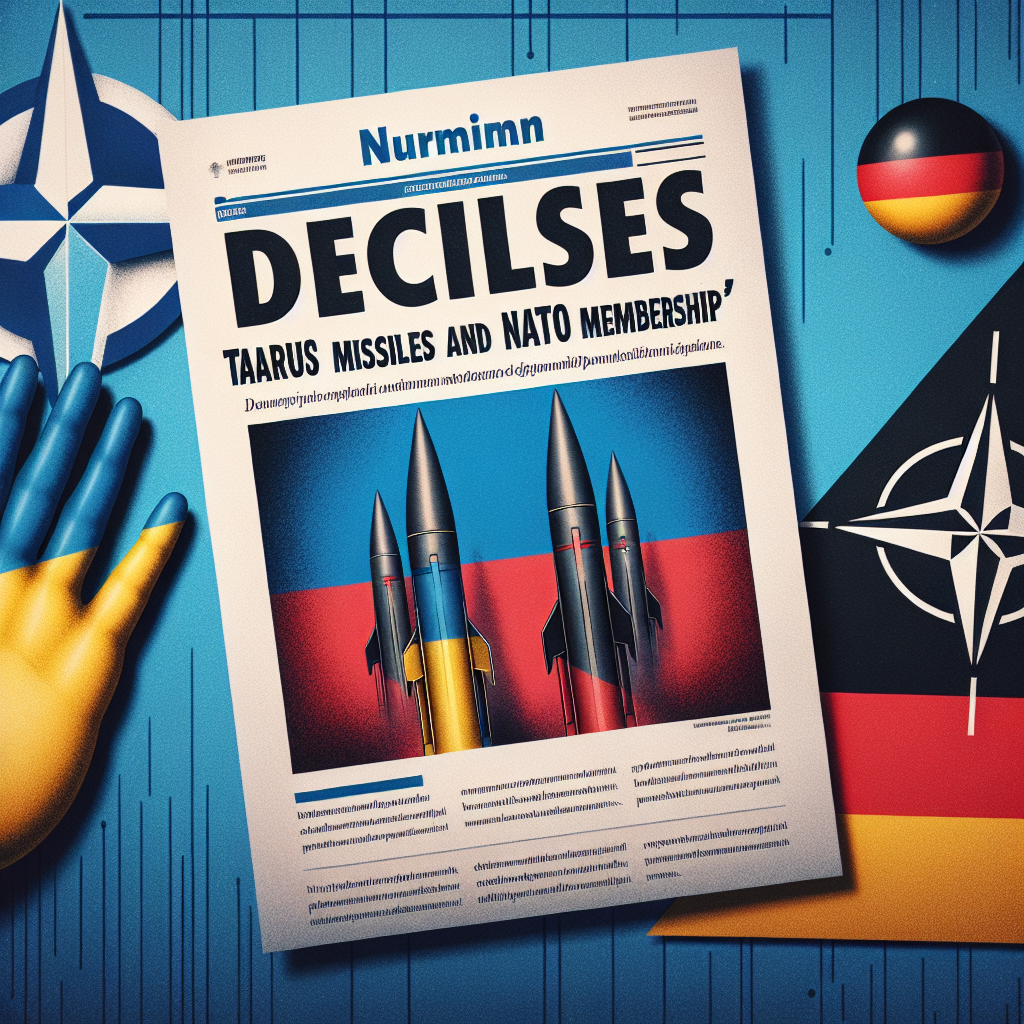During a recent European tour, Ukrainian President Volodymyr Zelensky sought to gain support for his “Victory Plan” but faced significant challenges, particularly in Germany. Reports indicate that Germany has dismissed two critical requests from Zelensky: the authorization for Ukraine to conduct deep strikes into Russian territory, which would necessitate advanced German Taurus missiles, and a swift path for Ukraine’s NATO accession. German Chancellor Olaf Scholz’s response to Zelensky was notably noncommittal; while not outright rejecting these requests, he similarly did not provide optimistic feedback, leaving Ukraine’s ambitions unfulfilled.
Despite extensive military support for Ukraine, including a new aid package of €1.4 billion announced by Scholz, critics suggest that the proposed assistance lacks the additional weaponry Zelensky sought. This announcement included systems like IRIS-T and skynex air defense systems, as well as combat drones and other military equipment. Notably, though Germany remains a major military donor, having committed around €28 billion overall, the Defense Ministry’s lack of faith in Ukraine’s capability to mount a significant counteroffensive soon tempers expectations regarding military hardware, as evidenced by the hesitance to supply more Leopard 2 tanks despite having a substantial inventory.
Additionally, the internal dynamics of Ukraine’s leadership indicate a possible shift in its hardline stance against negotiating with Russia. For a long time, Zelensky maintained that Russia must withdraw to its 2014 borders before any potential peace talks could take place. However, an unnamed Ukrainian official recently suggested that discussions are emerging within the Ukrainian administration regarding the possibility of ceding certain territories claimed by Ukraine, reflecting a pragmatic acknowledgment of the changing geopolitical landscape and growing pressures for peace negotiations.
Amid a backdrop of reduced military support from Western allies, concerns are surfacing about the long-term viability of Ukraine’s resistance. With an uncertain political climate in the U.S. – influenced by the upcoming presidential election – there are apprehensions regarding diminishing American support, which has been vital in sustaining Ukraine’s war efforts. This decline in external military aid, combined with rising public discontent in Ukraine regarding the prolonged conflict, could foster an environment where negotiations with Russia begin to seem more acceptable, challenging the previously unwavering stance of Ukrainian leadership.
NATO membership remains a critical and complex issue that hampers diplomatic resolutions. Russia demands that Ukraine remains neutral and refrains from aligning with military alliances, and these security guarantees are non-negotiable from Moscow’s perspective. The Ukrainian leadership’s recent cancellation of scheduled elections and the maintenance of power without fresh electoral validation are symptomatic of their reliance on Western support, which is waning, thus influencing their negotiating position with Russia.
In parallel to these developments, U.S. President Joe Biden’s last-minute decision to visit Germany for urgent talks underlines the shifting priorities of Western leaders regarding the Ukraine conflict. Scheduled to meet with Scholz and German President Frank-Walter Steinmeier, Biden’s discussions will encompass not only Ukraine but also issues related to the Middle East, potentially signaling a diversification of geopolitical focus. As the circumstances evolve, the urgency of supporting Ukraine amidst dwindling commitment from its largest benefactors reveals a pivotal moment for the Ukrainian government, which must navigate these complexities while trying to salvage its sovereignty and territorial integrity.

